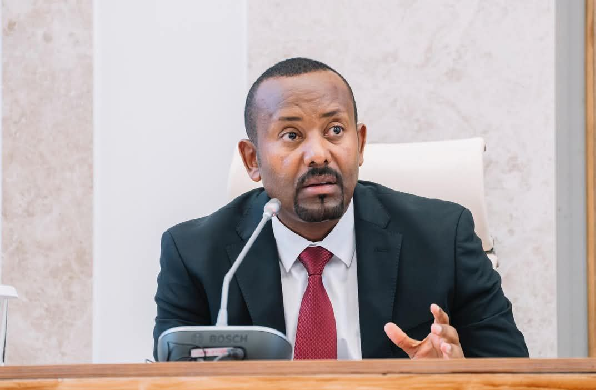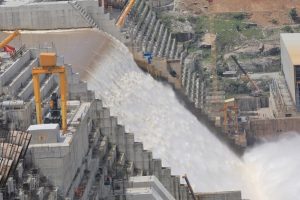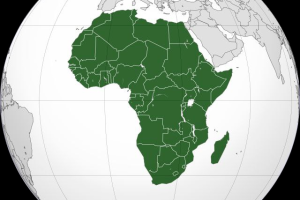
Ethiopia, a nation undergoing rapid economic development, has strategically placed the pursuit of reliable sea access at the forefront of its national agenda. Recognizing the inherent challenges of being a landlocked nation with a population exceeding 120 million, the Ethiopian government is actively engaging in diplomatic initiatives to secure maritime access, framing its approach as a “win-win” proposition that benefits regional stakeholders. This initiative, once considered a sensitive topic, is now a central component of Ethiopia’s strategic vision, garnering increasing international attention.
On March 20th, Prime Minister Abiy Ahmed (PhD) addressed the House of Peoples’ Representatives, providing a comprehensive response to questions and clarifications regarding the Federal Government’s first half-year performance report for the 2017 E.C fiscal year. During this session, he robustly countered what he termed “unwarranted accusations” that Ethiopia intends to acquire sea access through force.
Prime Minister Abiy highlighted that Ethiopia’s quest for maritime access has elicited a growing recognition within the international diplomatic community. He emphasized that foreign diplomats acknowledge Ethiopia’s unique predicament as the world’s most populous landlocked country, a factor that significantly impacts its economic and strategic interests. While the global community advocates for peaceful resolutions, some entities have attempted to undermine Ethiopia’s efforts, alleging that the initiative is driven by internal political agendas.
“Discussing access to the sea is as legitimate as discussions regarding the utilization of Nile River waters,” Prime Minister Abiy asserted, underscoring the fundamental nature of Ethiopia’s demand. He pointed out that the significance of the Red Sea and the Nile for Ethiopia’s future has been articulated for years, citing a publication from three years prior that underscored this strategic imperative.
Addressing concerns regarding Ethiopia’s relationship with Somalia, Prime Minister Abiy dismissed any notion of impending conflict, emphasizing that the extensive coastline offers ample opportunities for mutually beneficial agreements. He also categorically denied rumors of a potential war with Eritrea, stating, “Ethiopia has no plan to invade Eritrea for access to the Red Sea.” Instead, he advocated for negotiations based on “win-win approaches” and market-driven principles.
He asserts that “no external power could prevent Ethiopia from pursuing its strategic objectives.” He reiterated that Ethiopia’s military preparedness is strictly for defensive purposes, not for aggression.
He underscored Ethiopia’s historical role as a regional peace broker, citing its involvement in mediating conflicts such as the Kenya-Somalia dispute and the civil wars in Sudan and South Sudan. He emphasized that Ethiopia has consistently prioritized peaceful resolutions and has never initiated hostilities with its neighbors.
Describing Red Sea access as an existential necessity for Ethiopia’s 130 million citizens, Prime Minister Abiy urged the international community to contribute to peaceful and sustainable solutions.
Furthermore, Prime Minister Abiy addressed the ongoing discussions regarding the Grand Ethiopian Renaissance Dam (GERD) on the Abbay River (Blue Nile), reiterating Ethiopia’s commitment to negotiations with Egypt. He acknowledged that while past conditions might have been more conducive to an agreement, opportunities for cooperation remain.
“I have had discussions twice with Egypt’s former Foreign Minister and Intelligence Chief. I assured them that the Abbay Dam poses no harm since our objective is only to generate energy,” he stated.
Addressing concerns about potential droughts, he explained, “If drought occurs in Egypt, it will not affect water levels in the river. However, if it happens in Ethiopia, then rainfall in Egypt cannot prevent scarcity.”
Prime Minister Abiy noted that the Aswan Dam’s current full capacity demonstrates Ethiopia’s adherence to its commitments, emphasizing that “if Egyptian officials had handled the situation properly, cooperation would have been achievable. Of course, it is not too late for collaboration.”
He reaffirmed Ethiopia’s unwavering commitment to cooperation over the Nile, highlighting the Abbay Dam as a symbol of pride for both Ethiopia and the African continent.
He announced the dam’s inauguration within the next six months, noting the project’s completion, built with significant national sacrifices and without foreign funding.
“Following the success of the Abbay Dam, Ethiopia’s next major project is the establishment of a domestic fertilizer factory,” he said, highlighting efforts to launch local fertilizer production through private sector partnerships to address the nation’s 24 million quintal annual demand.
He has announced plans to establish a domestic fertilizer factory to address the nation’s reliance on imports. A study indicates the project will require 2.5 to 3 billion dollars and take at least three years to complete. The government is exploring private sector partnerships but will proceed with state investment if necessary. He emphasized the need for a factory capable of meeting Ethiopia’s annual demand of 24 million quintals. Current daily fertilizer imports stand at 150,000 quintals. The factory’s establishment is projected to begin next year, he added.
President Taye Atske-Selassie, in a message published on X, echoed Prime Minister Abiy’s commitment to peace, stating, “At Parliamentary debate, Prime Minister Abiy refuted the ‘specter’ war with our neighbours, refuted those who phantom mayhem and destruction.” He underscored Ethiopia’s aspirations for peace and development.
Now the long-standing issue of Ethiopia’s lack of sea access has moved into the public spotlight, with experts calling for immediate action. Hasabu Tesfa, a lecturer in Political Science and International Relations at Debre Birhan University, recently addressed the matter in an interview with Ethiopian Press Agency.
Hasabu characterized Ethiopia’s loss of its seaport as a “historical mistake,” compounded by the role of its own government. He emphasized that sea access is not merely a matter of sovereignty but a crucial element of economic, political, and social development.
“A seaport connects a nation to the world,” Hasabu stated, highlighting its importance in facilitating international trade and fostering social connections without external interference.
He further argued that Ethiopia’s rapidly growing population and expanding economy necessitate a swift resolution to the sea access dilemma. “With increasing needs and trade activities, as well as strengthened international relations, the issue of a sea outlet is critical, especially for future generations,” Hasabu warned. “Their survival may depend on it.”
The lecturer’s comments underscore the growing urgency surrounding the issue, as Ethiopia seeks to secure its economic future and enhance its global standing.
In conclusion, Ethiopia’s strategic pursuit of sea access and its commitment to regional cooperation, including the GERD negotiations, underscore its proactive approach to addressing critical developmental and geopolitical challenges. The nation’s leadership is actively engaging in diplomatic efforts to secure its long-term prosperity while fostering regional stability, emphasizing peaceful, mutually beneficial solutions.
BY EYUEL KIFLU
THE ETHIOPIAN HERALD SUNDAY EDITION 23 MARCH 2025



